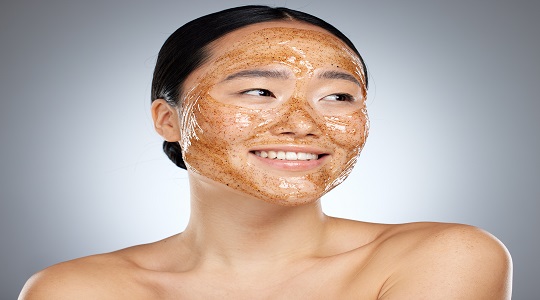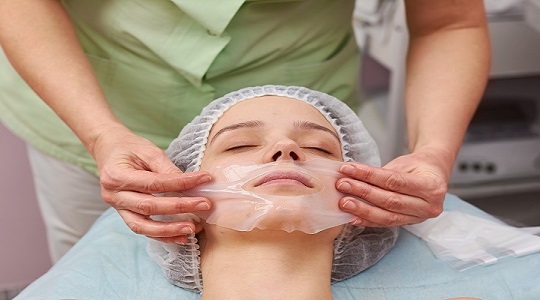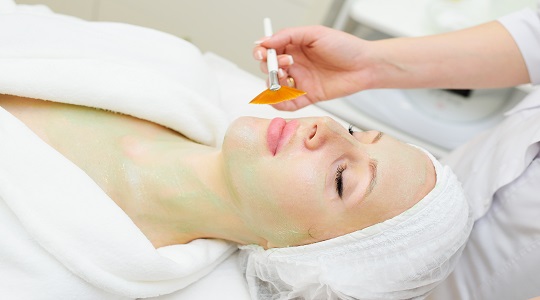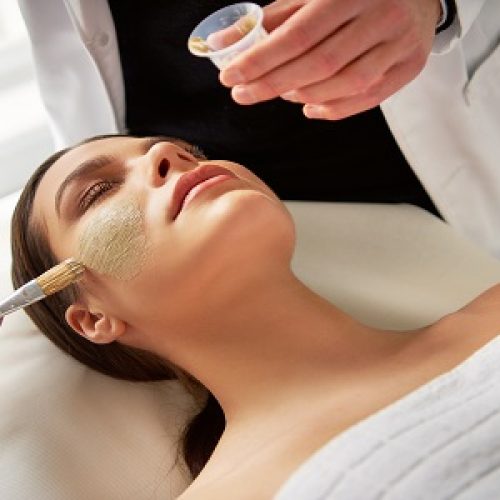Chemical Peel Treatment
Chemical Peel Treatment is a dermatological procedure that involves applying a chemical solution to the skin to exfoliate and remove damaged outer layers. It helps improve skin texture, reduce acne scars, fine lines, and pigmentation, and promote smoother, more even-toned skin.


A chemical peel is a cosmetic treatment that uses a chemical solution to exfoliate and remove damaged outer skin layers. This process reveals smoother, younger-looking skin beneath and improves tone. Depending on the peel’s strength and depth, it can treat acne, fine lines, sun damage, and hyperpigmentation. There are various types of peels, from superficial ones that target the outer skin layer to deep peels for more severe concerns, ensuring tailored treatment for different skin types and conditions.
Types of Chemical Peels
Chemical peels can be categorized into three primary types based on their depth and the intensity of the chemicals used: superficial peels, medium peels, and deep peels.

Superficial Peels (Light Peels)
These are the mildest and use gentle exfoliants like alpha-hydroxy acids (AHAs) to remove dead skin cells. Ideal for treating minor imperfections like fine lines and uneven texture, they have little downtime and provide subtle results.

Medium Peels
Using stronger acids like trichloroacetic acid (TCA), these peels penetrate deeper into the skin to address moderate issues such as acne scars, sun damage, and wrinkles. Recovery takes several days, but the results are more noticeable.

Deep Peels
The most intensive, deep peels use phenol to treat severe skin issues like deep wrinkles and significant sun damage. These peels require longer recovery (up to two weeks) but offer the most dramatic, long-lasting results, improving skin tone and texture significantly.
Who Is at Risk for Chemical Peel Treatment?
Chemical peels are generally safe, but certain factors may increase risks. Consult a dermatologist to determine if it’s right for you. High-risk individuals include:

Sensitive Skin: May experience irritation; patch test recommended.

Active Skin Conditions: Conditions like eczema or acne may increase risks.

Darker Skin Tones: Higher risk of hyperpigmentation; treatment should be tailored.

Pregnant or Breastfeeding Women: Avoid peels with retinoids or salicylic acid.

History of Keloids: May develop more prominent scars.
Symptoms of Skin Concerns Treated by Chemical Peels:
Symptoms vary depending on where the infection occurs. With a skin infection, you may experience the following:
- Hyperpigmentation: Dark spots, age spots, and melasma from sun exposure or hormonal changes.
- Acne & Acne Scars: Active acne and post-inflammatory hyperpigmentation.
- Fine Lines & Wrinkles: Shallow wrinkles, especially around eyes, forehead, and mouth.
- Sun Damage: Discoloration, uneven tone, and rough texture from prolonged sun exposure.
- Dull Skin Tone: Lackluster, dry, or uneven skin.
- Rough Texture: Uneven or bumpy skin due to clogged pores or scarring.
- Enlarged Pores: Prominent pores caused by excess oil production or aging.

Causes and Factors Contributing to Skin Concerns
- Sun Damage: UV rays break down collagen, causing wrinkles, fine lines, and dark spots.
- Aging: Slower collagen production leads to sagging, fine lines, and dull skin.
- Hormonal Changes: Hormonal fluctuations cause pigmentation issues like melasma.
- Environmental Factors: Pollution, smoking, and stress damage skin, leading to wrinkles and pigmentation.
- Lifestyle Choices: Poor diet, lack of sleep, and dehydration accelerate skin aging.
Book your experience
Our expert team is ready to help you achieve radiant, healthy skin with treatments tailored just for you.
Enhance your beauty
Reveal your natural glow with expert beauty treatments designed to enhance your confidence.

Book an appointment

Get your schedule

Meet with our expert





